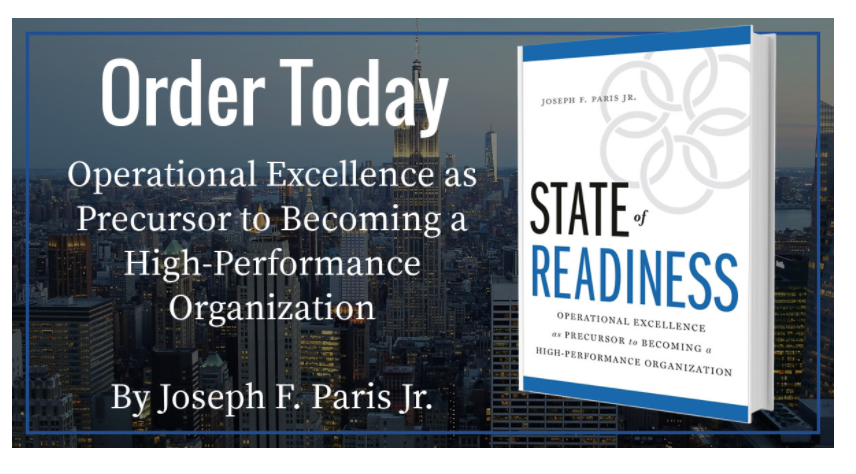 It seems that not a day goes by without our reading about someone getting caught in the processes of a system – aggreged not (necessarily) by nefarious intent, but by a process that didn’t take into consideration some set of circumstances. Sometimes, the angst endured is amplified by the subsequent processes initiated in a chain of events.
It seems that not a day goes by without our reading about someone getting caught in the processes of a system – aggreged not (necessarily) by nefarious intent, but by a process that didn’t take into consideration some set of circumstances. Sometimes, the angst endured is amplified by the subsequent processes initiated in a chain of events.
Take the situation of Dr. David Dao who, on April 9th 2017, was supposed to fly from Chicago to Louisville on United Flight 3411.
Dr. Dao had been issued a boarding pass, was checked-in and seated in his assigned seat. United needed to make room for some flight crew required in Louisville to man a flight originating from there and asked for volunteers to give-up their seats (with compensation for the inconvenience). When not enough volunteers came forward, United decided to select passengers (based on a predetermined algorithm) and involuntarily “re-accommodate” them (bump them against their will).
Dr. Dao was one of the ones selected, but he refused to go. This caused the United crew to seek assistance in his being “deplaned” (removed) from the authorities at the airport, one of whom decided the use of brute force in removing Dr. Dao was justified.
Fortunately for Dr. Dao, and less fortunate for others, the episode was recorded.
The result of the incident was a mess; Dr. Dao suffered considerable physical harm, United spiraled into a public relations nightmare (made worse by the callous non-apology from United CEO Oscar Munoz), and the suspension of three officers from the Chicago Department of Aviation.
This is an event that absolutely did not need to happen.
Certainly, Dr. Dao could have complied with his being selected for involuntary “re-accommodation”, and what followed would not have occurred. However, Dr. Dao was not “bumped”. He already had his seat assignment and was seated in it. If he had checked luggage, it would have already been in the cargo hold. He felt he was in the right and, for whatever reason, he did not want to leave.
The United crew did not do all it could to encourage volunteers, stopping at a compensation level of $1,000 when the “ceiling” for such compensation is $1,350. Why didn’t they go to the limit? In fact, why couldn’t they go beyond until an attractive enough number was reached?
Some argue that it was not a “United Crew”, but actually an airline called “Republic Airlines” doing business as United Express. To me, this is a non-argument. If you are flying the United flag, then you are United – period.
And the authorities who were called did not have to use the amount of brute force that they did in removing Dr. Dao from the aircraft. Dr. Dao was not being physically aggressive, he was just protesting his being selected for “re-accommodation.” The officers claim he was being “belligerent” (read: verbally “protesting” his being selected). When did merely arguing or verbally protesting some injustice (real or perceived) become a threat large enough to warrant such a disproportionate physical response? Evidently, the authorities thought this was cause enough to open a can of whoop-ass on Dr. Dao. Well, it’s not…
Immediately afterwards, everyone at United and the authorities started to hide behind their processes and protocols for justification of their actions. The CEO at United, in his second of three addresses regarding the event, stated; “Our employees followed established procedures for dealing with situations like this.”
That is, until the public outrage became so intense as to illuminate the absurdity and lies.
The German’s are defined by the pride in which they formulate and follow the rules – so much so that it has become cliché. Their phrase, “Ordnung muss sein” is a German expression which translates as “there must be order.” The general rule being they prefer to follow processes and protocols above intent.
As such, we build processes and protocols to standardize work and ensure the quality, input requirements, and outcomes realized are predictable. And following such processes and protocols works almost all the time; this is especially true when it comes to configuring and operating machinery and equipment. You want to set your production line to operate at its maximum efficiency – maximizing the quality and production and minimizing the waste.
Doing things right.
But it is far less true when it comes to dealing with people – there are too many variants and unique circumstances. The best that can be expected is that these processes and protocols for people will work in most instances. In the instances where they won’t work, we need guidance and to use our imagination.
For instance, in a recent report on CBS News, the nurses at a hospital in Aarhus Denmark decided to break protocol and grant one last wish for a glass of wine and a cigarette to a patient whose death was imminent; even though smoking is not allowed on the hospital grounds. Taking it one step further, the nurses wheeled the dying man to a balcony overlooking a sunset where he was able to enjoy his contraband peacefully with his family. The only comment from the hospital regarding the nurse’s breaking with protocol was; “Mr. Hansen died a ‘dignified’ and quiet death days later, on April 7, after enjoying his final request.”
Doing the right thing.
Another perspective is that procedures and protocols are tactical, a means to an end, whereas invoking imagination is strategic, an over-arching plan involving multi-faceted operations and decision-making (often from imperfect information) driving tactical execution.
But to evolve from the tactical to the strategic requires that those responsible for execution must be entrusted to think for themselves – and this requires confidence in the capabilities and capacity of those empowered to make decisions and the existence of a culture of leadership.
Instead, all too often, we see a culture of subordination and fear. People are afraid to do what is right – even when they know what that might be – because of ego or that they believe they will be second-guessed or even punished.
There are many organizations that lack a culture of leadership, and United and the Chicago Department of Aviation are just the latest egregious examples – there are countless others which we read about each and every day.
And that is why they will never become high-performance organizations.
Bio:
Paris is the Founder and Chairman of the XONITEK Group of Companies; an international management consultancy firm specializing in all disciplines related to Operational Excellence, the continuous and deliberate improvement of company performance AND the circumstances of those who work there – to pursue “Operational Excellence by Design” and not by coincidence.
He is also the Founder of the Operational Excellence Society, with hundreds of members and several Chapters located around the world, as well as the Owner of the Operational Excellence Group on Linked-In, with over 40,000 members.
Connect with him on LinkedIn

